Souvenir Programme | 24 June 2025


Souvenir Programme | 24 June 2025

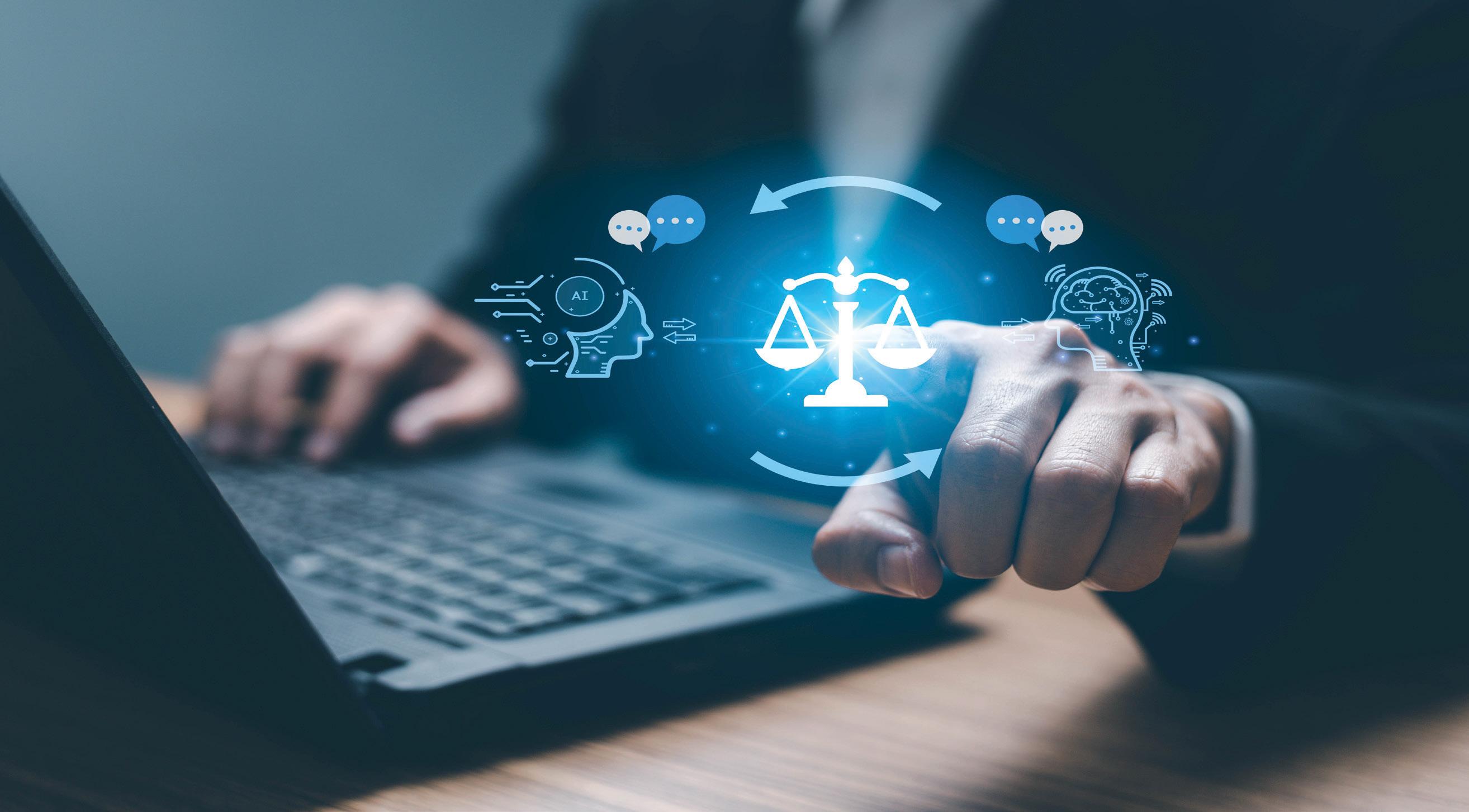

Since its inception almost nine decades ago, LexisNexis South Africa has been a global leader in legal technology, consistently developing innovative solutions that enable legal professionals, corporations and governments to navigate complex legal and regulatory landscapes. LexisNexis combines advanced technologies, harnessing the power of AI, to enhance the efficiency, productivity and decision-making capabilities of professionals across a range of industries. From legal risk tools to research and compliance management systems, LexisNexis offers a diverse suite of products
engineered to empower users with the knowledge and tools they need to succeed, covering research, risk and compliance, and workflow solutions.
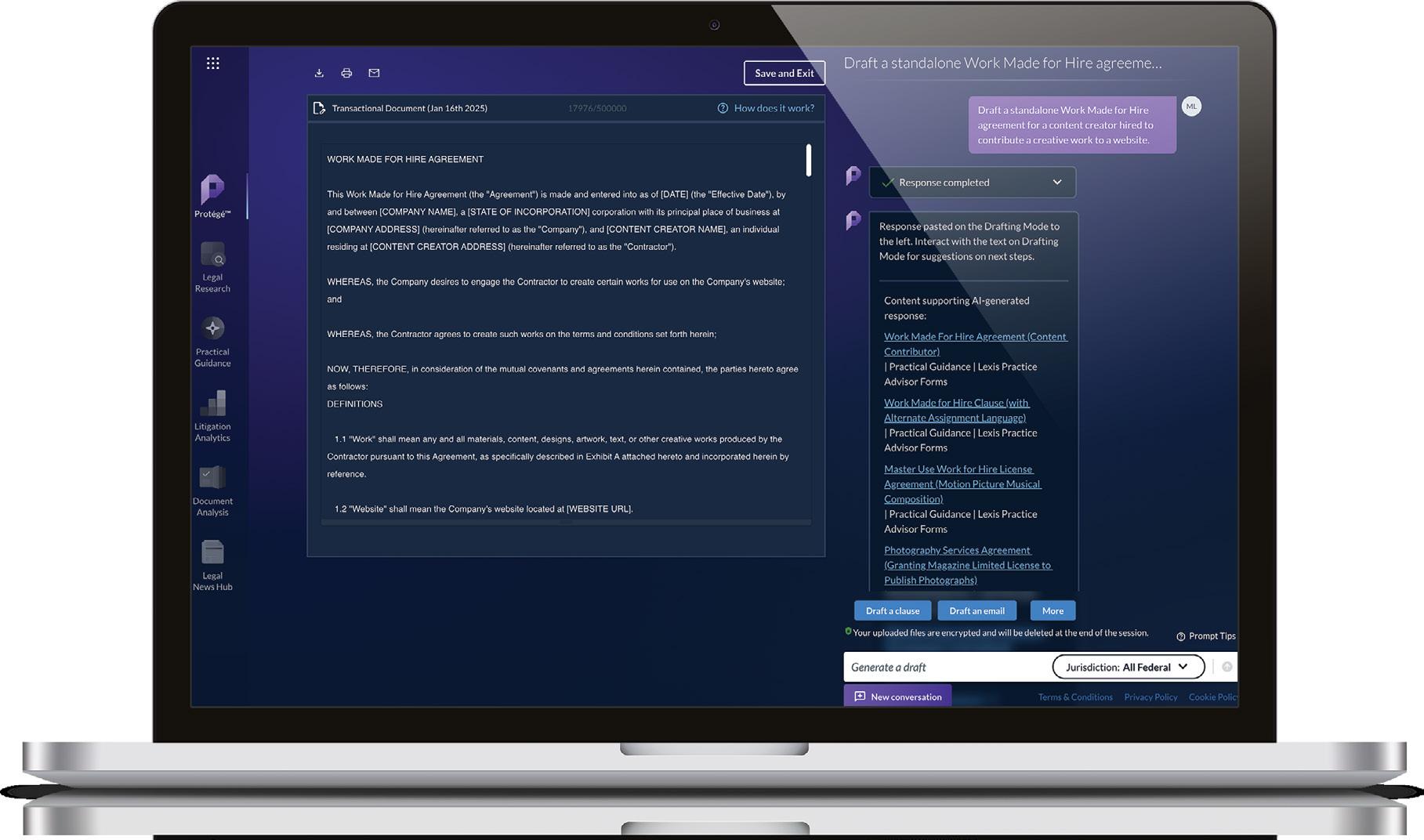
Driven by artificial intelligence and analytics, LexisNexis’ research tools offer solutions which bridge the gap between theory and practice. Designed using global technologies and local insights, Lexis+ is a next-generation legal research platform which combines decades of expertise with cutting-edge AI and machine learning technologies.
The platform offers legal professionals access to extensive legal databases, case law, statutes and secondary sources, streamlining and enhancing legal research as well as meeting the demands of the changing legal landscape. The recently launched Lexis+ AI is built and trained on the largest repository of accurate and exclusive legal content to provide customers with trusted, comprehensive legal results with unmatched speed and precision and backed by verifiable, citable authority. Lexis+AI technology features conversational search, insightful summarisation, and intelligent legal drafting capabilities, all supported by state-of-the-art encryption and privacy technology to keep
sensitive data secure.
Conversational search simplifies the complex and time-consuming legal research journey, providing a search experience for diverse legal questions with citations to facilitate effective and efficient research. Enhanced summarisation provides a custom summary of case law to speed up and guide insightful analysis.
Generative document drafting guides customers through the legal drafting process, generating a first draft of a legal document, and allowing users to change the language and tone from a simple prompt Lexis Practical Guidance is another online resource which provides step-by-step guidance, practice notes, checklists and forms tailored
to specific legal areas. Each practice area is tailored to meet the specific needs of its target persona, enabling professionals to enhance their workflow, mitigate risks, and deliver high-quality services.
Other innovative research resources are the LexisNexis Academic & Professional Print Suite, which offers an extensive collection of legal, tax and finance resources, including textbooks and reference materials. These suites are invaluable resources - curated by experts - for scholars, students and professionals who want to stay up-to-date with the latest developments.
09:00 - 10:00 Arrival and Networking + one-on-one meetings
10:00 - 10:10
Moderator opening remarks: Caitln Nash, CEO: Golden Thread Markets

10:10 - 10:30
A Fireside chat with Ian Andrews, CEO of LexisNexis & Caitln Nash around How Generative AI is Powering a New Era of Legal Practice


10:10 - 10:15
Keynote Address: Dr Mathews Phosa, South Africa Attorney and Politician

10:40 - 11:25
Lexis+ AI Panel Discussion: AI in Law: Shaping the Future of Legal Practice
Speakers:
• Desigan Naidoo, Executive Manager: Technology, LexisNexis
• Lizanne Engelbrecht, Content Development Manager, LexisNexis
• Kofi Kyei, Sales Director, LexisNexis



Have a look at our order of events at the Lexis+AI lunch 2025
11:25 - 11:35 Interactive Q&A
11:35 - 11:50
Lexis +AI Demo: Claude De Villiers, Head of Solutions at LexisNexis

11:50 - 12:00
Moderator closing remarks: Caitln Nash, CEO: Golden Thread Markets

13:00 12:00 - 13:00 End of Event Networking Lunch is served
In today’s increasingly regulated environment, effective governance, risk and compliance (GRC) management is vital for businesses to thrive. Tailored for corporations, financial institutions and government agencies, Lexis GRC offers tools and resources for policy management, risk assessment, monitoring and reporting. This centralised platform enables organisations to maintain robust compliance frameworks, mitigate risks, make more informed decisions to safeguard their operations and improve overall corporate governance. Third-party risk management is crucial for businesses that rely on vendors and partners. By offering advanced screening tools and customisable risk assessments, Lexis
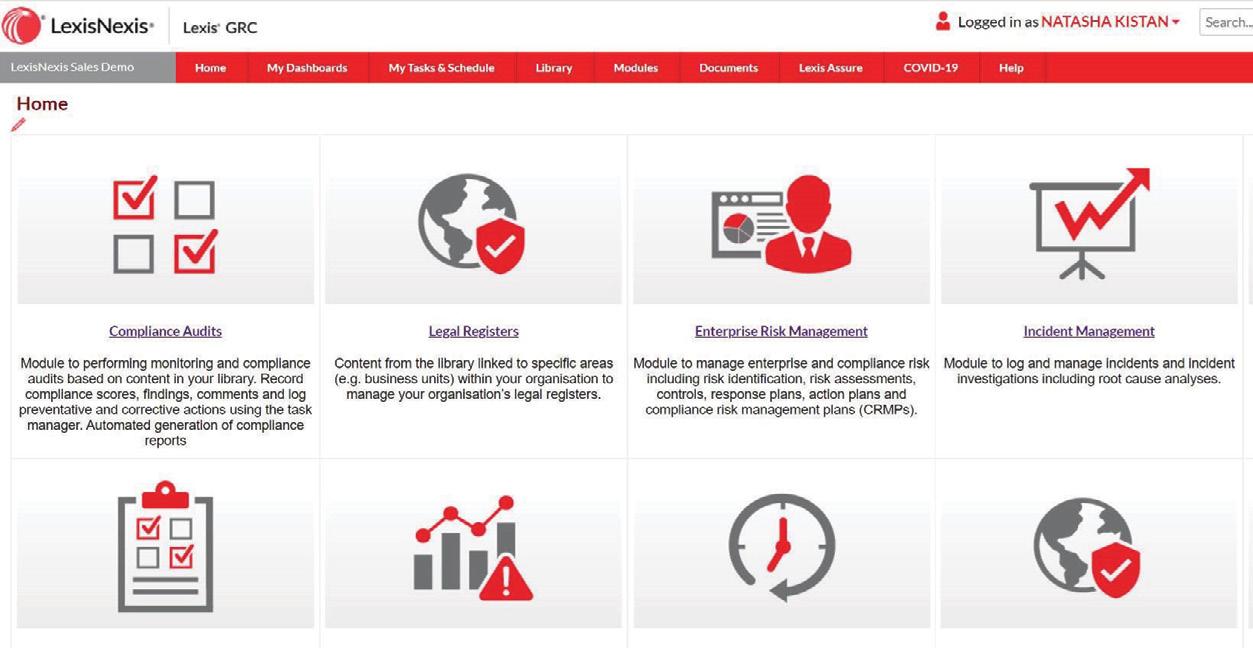
ProcureCheck enables businesses to mitigate third-party risks and protect their reputation. Lexis ProcureCheck is a due diligence solution that provides access to an extensive database of public records, allowing organisations to perform thorough background checks.

Property transactions can be time-consuming with little room for errors but Lexis WinDeed and Lexis Convey simplifies and automates the conveyancing process. Designed for conveyancing attorneys, law firms, and property professionals, the solutions offer a centralised platform to manage all aspects of property transfers. From the initial instructions to final registration, these software solutions include advanced features such as document, workflow management, and integration with deeds office systems.
Obtaining rate clearance certificates are necessary step property transactions. Lexis Rates Clearance simplifies the process, ensuring transactions are compliant with local government requirements and helps avoid delays that can arise from missing or delayed rate clearance
certificates. For navigating the complex world of estate administration, Lexis Deceased Estates offers a solution designed for attorneys, fiduciary practitioners, and trust companies.
With anti-money laundering (AML) compliance obligations firmly under the regulatory spotlight, Lexis KYC (Know Your Customer) offers organisations a comprehensive customer onboarding solution which assists in building a trusted customer base. Using advanced screening tools, watchlist monitoring, and customisable risk scoring models, Lexis KYC gives organisations access to a vast database of records, equipping them to mitigate financial crimes and comply with regulations.
Who you work with in your organisation is just as important as who you work with outside of the organisation.
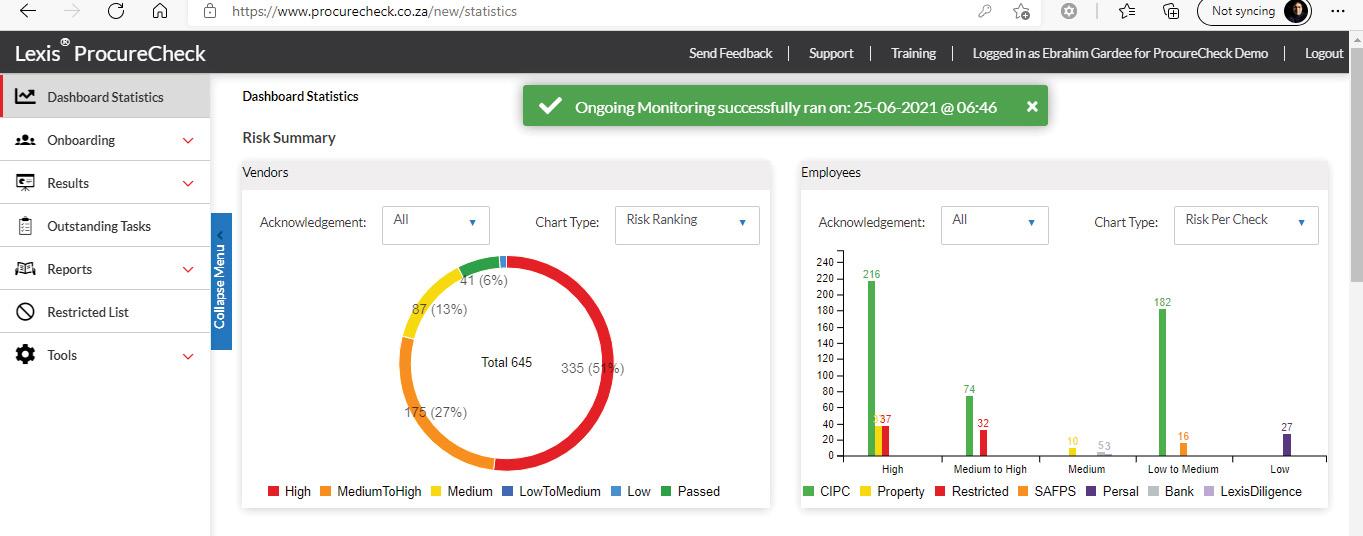
Hiring the right employees is crucial to the success of any organisation and Lexis RefCheck helps HR professionals, recruiters and managers to find the right people by simplifying the background screening process by providing access to a database of employment records to verify candidates’ work histories, qualifications, and credentials. Lexis Sign is another workflow solution which can improve operational efficiency and ensure legal compliance. It offers a secure,
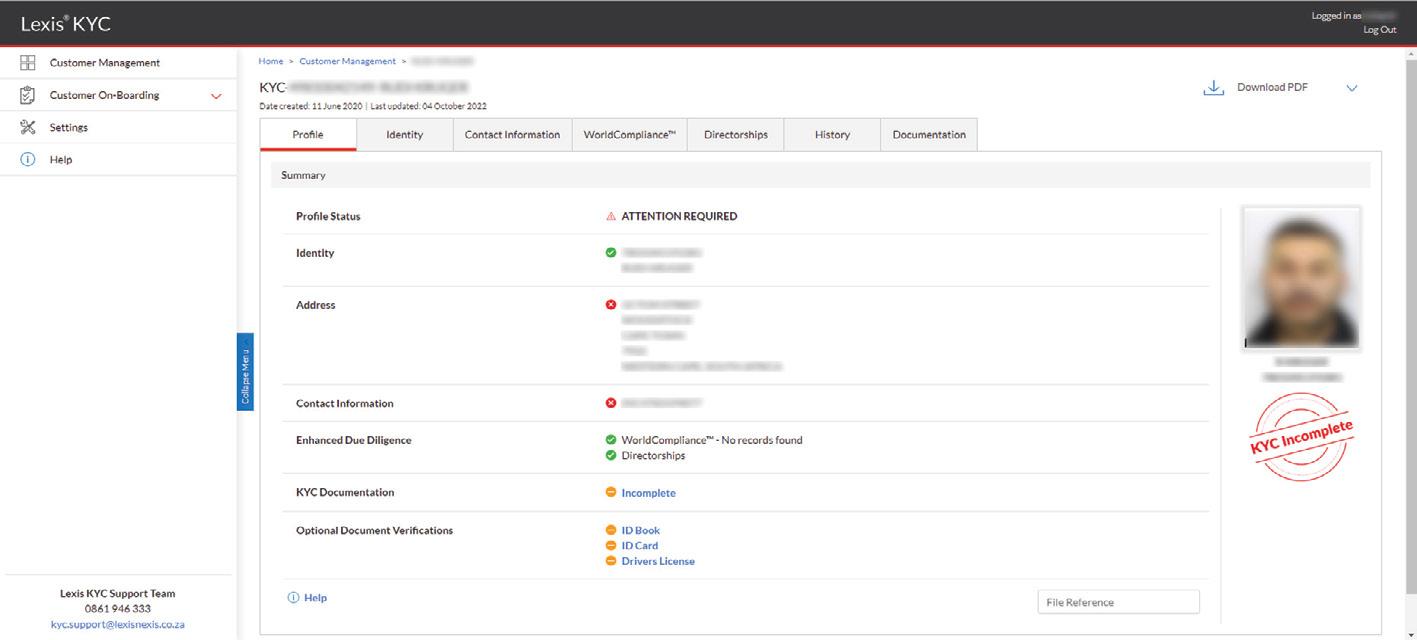

user-friendly electronic signature solution for organisations of all sizes, replacing physical document handling and manual signatures with an efficient electronic system. Whether you’re a legal professional seeking efficient research solutions or a business striving to manage compliance risks, LexisNexis offers the tools, resources and expertise needed to succeed in today’s past-paced, technology-driven world.
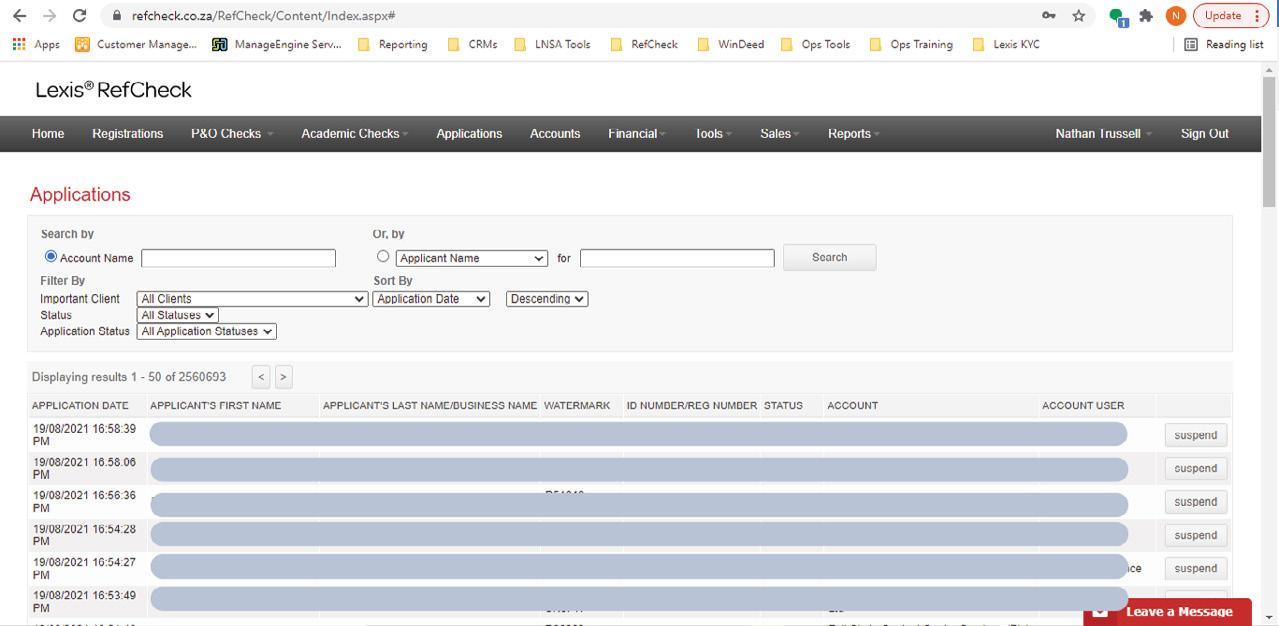





Content Development Manager, LexisNexis


Executive Manager: Technology, LexisNexis
former Deputy Minister of Justice and Constitutional Development, at the Lexis+ AI Commercial Launch, Sandton, 24 June 2025
I’m sure many of us who have been in the legal profession for more than two or so decades, will remember diarizing a file by having an actual brown paper file and writing the date when the file had to be reviewed on the back cover, before filing it in a filing cabinet.
Correspondence was sent either by registered post or by fax – and in the case of the latter, after you’ve faxed your document to the other party’s attorneys, the fax machine would print out a little transmission slip with the date and time and a “sent” status on it.
Letters would be sent by post and incoming post would be stamped with an ink padded date stamp. We had dictaphones and mini cassette tapes – which would forever seem to get lost in the office.
Later we had email and the internet and a rather condescending little virtual assistant in the form of an animated paperclip, called Clippy, who would regularly roll his eyes at you or raise one annoying eyebrow if you made a mistake.
If you were a candidate attorney you would drive or walk to the law firms of opposing parties to have pleadings stamped as received and you had to make absolutely sure the signed and stamped copy was placed in the court file.
Later on, having the law reports and all the statutes on a digital and searchable database was groundbreaking and revolutionary.
I mention these things – not to give away my age, but rather to show the speed at which technology has advanced and how far we have come in a very short space of time.
Technology has changed nearly every aspect of our daily lives – as it has changed the legal profession and access to justice. Legal technology in the form of artificial intelligence, virtual platforms, software and digital innovations and apps have changed the legal landscape forever.
Artificial intelligence as a field of computer science has focused on creating systems that can perform tasks typically requiring human intelligence, whether it’s recognizing faces in photos, translating languages or even diagnosing diseases. More advanced models can learn, adapt, and generate creative content. We have managed to teach machines how to think, to learn from data, and to
make decisions.
AI has reshaped the legal world and access to justice in many different ways. It is helping legal practitioners, paralegals and students with legal research and document review by finding case law, statutes, and legal documents in seconds and spotting relevant information faster and more accurately than ever before.
It can help with contracts and pleadings by reviewing such documents for inconsistencies or missing clauses and can even generate first drafts. In the area of litigation, some AI systems are able to analyse past rulings to help lawyers and their clients better predict case outcomes. When it comes to client service and accessibility, chatbots and virtual assistants are helping law firms provide 24/7 support by answering basic legal questions. In short, AI is saving us both time and costs by freeing up lawyers to focus on complex strategic work.
Enhancing access to justice is fundamental, especially in our country, where inequality remains the lived reality of many people. Access to justice is not only knowing what your rights are, but also being able to know where to go to have those rights enforced or a dispute resolved. Not everyone in South Africa is able to do that – with private legal fees being unaffordable for many.
It also means having trust in the justice system and the rule of law and knowing that your matter will be heard speedily by a court. AI is able to significantly assist with court efficiency The Office of the Chief Justice is developing and implementing Court Online, which is an advanced cloud-based collaboration solution aimed at providing a platform for law firms and litigants to file documents electronically. Court Online is an end-toend E-Filing, Digital Case Management and Evidence Management system for our High Courts which minimises paper court documents and provides benefits of electronic storage that lead to faster document filing and retrieval and prevents the misplacement of court files. It provides an electronic case file showing upcoming hearing dates and documents filed and allows disputes to be adjudicated electronically.
There is no doubt that there is enormous potential for the further and increased use of AI in the legal profession and the justice system by automating and streamline processes such as document review and case management.
Most of what we use as evidence in legal matters are electronically stored – such as emails, Word documents, PDFs, social media posts, databases, audio and video files and so forth. This requires a fundamental change in the discovery process, with many using electronic discovery or e-discovery, with technology-assisted review (TAR) establishing itself into standard e-discovery practices in litigation.
But with these developments in AI there are also challenges – perhaps all the more so in the area of law, which is by its nature a traditional, at times conservative, and process-driven environment.
There are also potential risks, such as the risk of algorithmic bias, data bias and design bias.
The use of AI can also raise ethical and legal challenges, such as privacy issues, an increased need for data protection and security, and issues of the authenticity, validity and admissibility of evidence – all risks which may or may not be adequately addressed by current laws and regulations.
In addition, many of us share growing concerns over the use of AI-generated citations which, as we know from a recent case, were later found not to exist. The same concerns exist around the possible use of fabricated data.
There are also questions about accessibility. Not everyone in South Africa has the means to access digital infrastructure. The use of AI should make the law more accessible, not more exclusionary.
Looking further ahead, what does the future hold for AI and the practice of law? Technology develops faster than the laws which are meant to cater for it. This is something we need to make provision for.
From an international perspective, how do we harmonize the resolution of legal issues across different jurisdictions, especially if the dispute originated online?
Who has the last say over the governance of AI and algorithmic decision-making in the case of a dispute?
In a very insightful paper called Legal Technology in South Africa and Africa: Opportunities, Challenges, and Developments, lawyer and legal tech and innovation specialist, Leah Molatseli, writes, and I quote, “despite these promising developments, the adoption of legal technology remains uneven. Disparities in access to digital infrastructure, persistent professional conservatism, regulatory ambiguity, and cybersecurity vulnerabilities pose significant challenges.”
These are but some of the questions we need to answer if we want to use technology – and AI in particular - without compromising trust in the law and the justice system.
We may think that technology may make all of us redundant, but the human touch in the practice of law and in ensuring access to justice will remain as important as it ever was. A friend of mine recently retorted that “TV courtroom dramas are going to pretty bland without a human lawyer in it”. And although this was said in jest, there is a definite element of truth to it.
People consult lawyers and other professionals like doctors when they need help. Often their situation is dire. Speaking to a chatbot is great because it’s fast and efficient and available 24/7, but we are human beings and in certain situations, for example, if you arrested at 2am in the morning or fighting for custody of your children in a messy divorce, we want to be helped by another human being. Yes, AI can help us by having a digital lawyer available, but real human connection is something which no technology will never be able to replace.
We need innovative and adaptive measures, participation and collaboration of all stakeholders to ensure that the use of technology benefits the law and does not detract from it. It will require careful and responsible use and constant evaluation to ensure that the law does what it’s supposed to do – which is adequately protect the rights of people.
In conclusion, it will require from us adaptation and innovation, ensuring that we continuously learn and develop new skills. AI and the possibilities of using AI in increasing access to justice are phenomenal. It can help us in a myriad of ways by saving us time, costs and effort and it has the potential to make access to justice a reality for millions of people who would otherwise have been denied.
It brings with it opportunities for enhancing the rule of law, promoting human rights, and advancing social justice. But, at the same time and perhaps most importantly, it places an enormous responsibility on us as humans and as legal practitioners to ensure that we use AI in an ethical way.
Human oversight over AI and technology will be more important than ever. We need to verify and ensure the accuracy of everything we do, without overly relying on AI to do it for us.
In short, we must never lose our humanity when it comes to the practice of law and ensuring access to justice.
I want to wish you all the very best for the launch of Lexis+ AI. I have no doubt that your groundbreaking new legal technology tool will help to transform legal drafting and research and will greatly assist in ensuring access to justice in South Africa.
